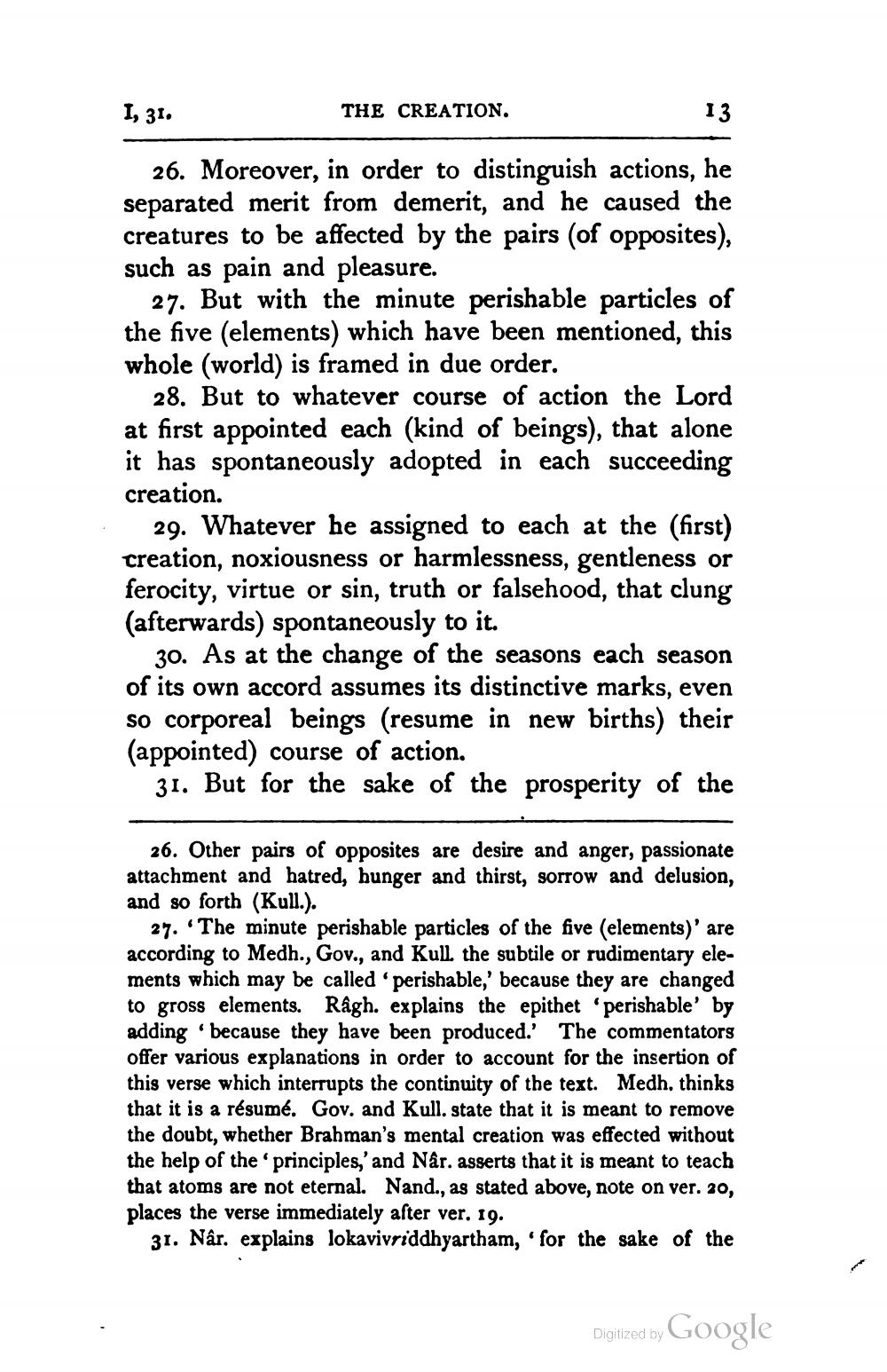________________
13
26. Moreover, in order to distinguish actions, he separated merit from demerit, and he caused the creatures to be affected by the pairs (of opposites), such as pain and pleasure.
I, 31.
THE CREATION.
27. But with the minute perishable particles of the five (elements) which have been mentioned, this whole (world) is framed in due order.
28. But to whatever course of action the Lord at first appointed each (kind of beings), that alone it has spontaneously adopted in each succeeding creation.
29. Whatever he assigned to each at the (first) creation, noxiousness or harmlessness, gentleness or ferocity, virtue or sin, truth or falsehood, that clung (afterwards) spontaneously to it.
30. As at the change of the seasons each season of its own accord assumes its distinctive marks, even so corporeal beings (resume in new births) their (appointed) course of action.
31. But for the sake of the prosperity of the
26. Other pairs of opposites are desire and anger, passionate attachment and hatred, hunger and thirst, sorrow and delusion, and so forth (Kull.).
27. 'The minute perishable particles of the five (elements)' are according to Medh., Gov., and Kull. the subtile or rudimentary elements which may be called 'perishable,' because they are changed to gross elements. Râgh. explains the epithet 'perishable' by adding 'because they have been produced.' The commentators offer various explanations in order to account for the insertion of this verse which interrupts the continuity of the text. Medh, thinks that it is a résumé. Gov. and Kull. state that it is meant to remove the doubt, whether Brahman's mental creation was effected without the help of the 'principles,' and Nâr. asserts that it is meant to teach that atoms are not eternal. Nand., as stated above, note on ver. 20, places the verse immediately after ver. 19.
31. Nâr. explains lokavivriddhyartham, 'for the sake of the
Digitized by
Google




